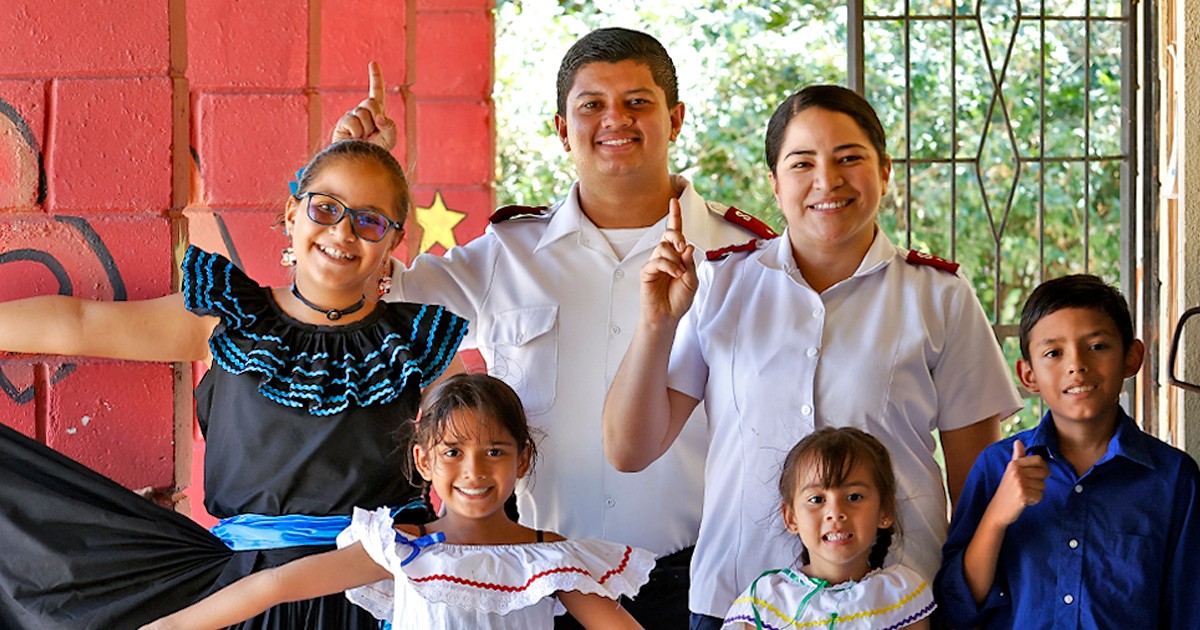Acknowledging Advent has become much more prevalent in The Salvation Army over the past 30 years. Growing up, I was unaware of it—I had never even heard the word. But as the Army experienced worship renewal, along with the rest of the church, we began to pay greater attention to the Christian calendar: Advent, Christmas, Epiphany, Lent, Easter, Pentecost and Ordinary Time. Being intentional about this rhythm enriches our worship and helps us find our place in God’s story.
To acknowledge the 12 days of Christmas would allow us to ‘treasure and ponder’ the deep significance of the birth of Jesus.Perhaps it’s time to push ourselves a bit further, to embrace another aspect of the church year. What would happen if we celebrated Christmas as a season rather than a day? Society around us builds to Christmas Day, then quickly moves on, turning to Boxing Day sales and New Year’s Eve celebrations. Christmas is over.
But that is not true for followers of Jesus. The birth of Christ was the climax of God’s plan to redeem the world, the time when God moved into the neighbourhood: “The Word became flesh and lived among us, and we have seen his glory” (John 1:14 NRSV). Surely this is worth more attention than one day.
The biblical stories surrounding the birth of Jesus and the rich carols that have been composed over the years can continue past Christmas right through to Epiphany on January 6, when we focus on the coming of the Magi from the East to worship the Christ Child. There are 12 days between Christmas Day and Epiphany, and parts of the church have acknowledged this Christmas season for centuries.
To acknowledge the 12 days of Christmas would allow us to “treasure and ponder” the deep significance of the birth of Jesus, the Saviour of the world (see Luke 2:19). Let’s begin by brainstorming some ways to extend Christmas from a one-day celebration to a 12-day season.
- New Year’s Eve falls within the Christmas season—what difference does Christ’s birth make to the way we begin the new year? What are the implications for us personally and for our worship on the first Sunday in January?
- Consider moving at least one Christmas activity to one of the 12 days of Christmas. For example, many seniors’ homes have numerous groups coming in to do programs and distribute treats in December, but the time after Christmas Day can be a real letdown. What if we visited after December 25, but still during the Christmas season?
- We could spread out gift-giving over the 12 days of Christmas within our families.
- We could focus our devotional time each day on the impact of Christ’s birth on us and our ministry for the coming year. Rather than rushing ahead, as we often do, we could take time to “treasure and ponder” the gift of Jesus, as Mary did.
The journey of the Magi, as they followed the star in the east, took a lot of travel time. When they arrived, they were ready to worship the infant Jesus and present their gifts of gold, frankincense and myrrh. As we extend Christmas, we may discover, both personally and corporately, a deeper and wider understanding of God’s incredible gift to us, the Word who “became flesh … full of grace and truth” (John 1:14 NRSV).
Major Cathie Harris is a retired Salvation Army officer who lives in Winnipeg.
Illustration: shelma1/iStock via Getty Images










Leave a Comment